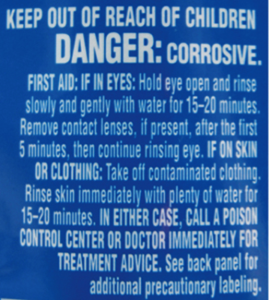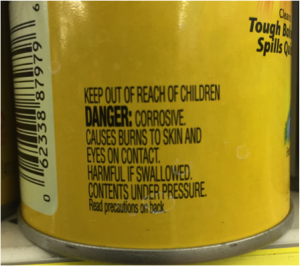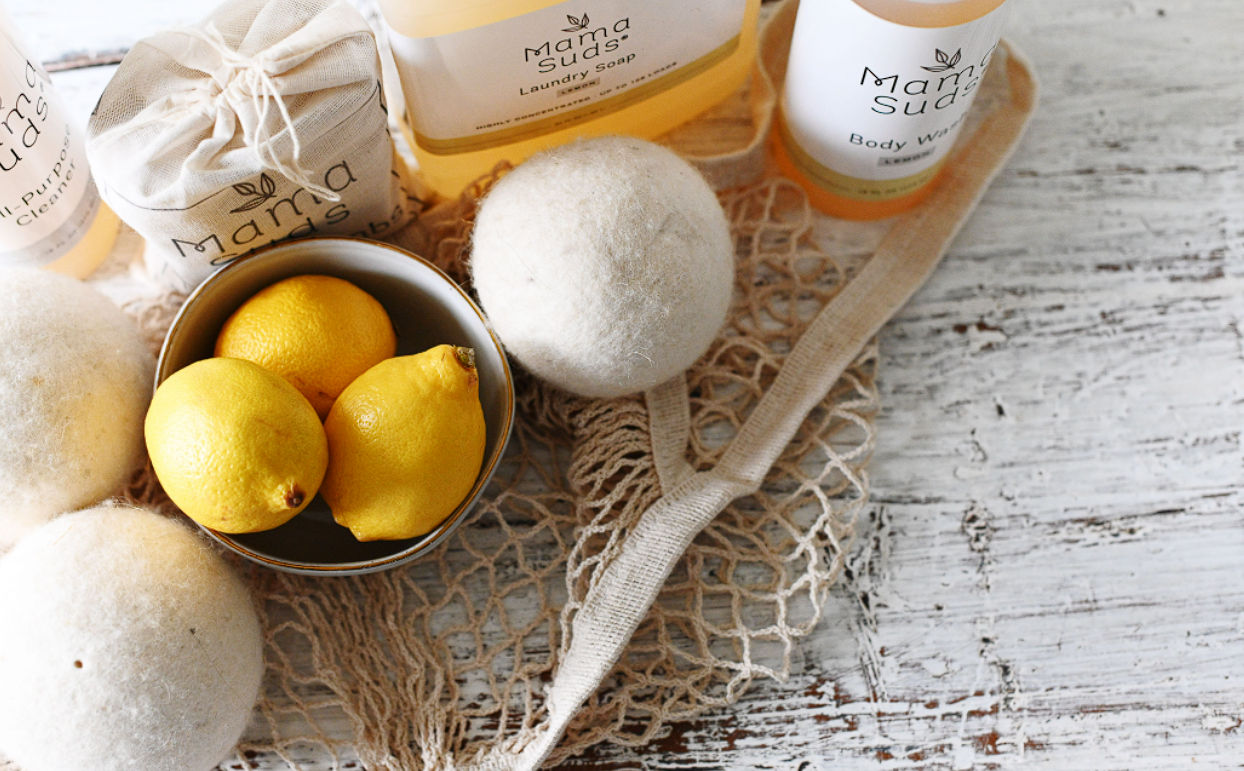
The CleanSuds Blog
Where education and truthful facts are easy to come by.
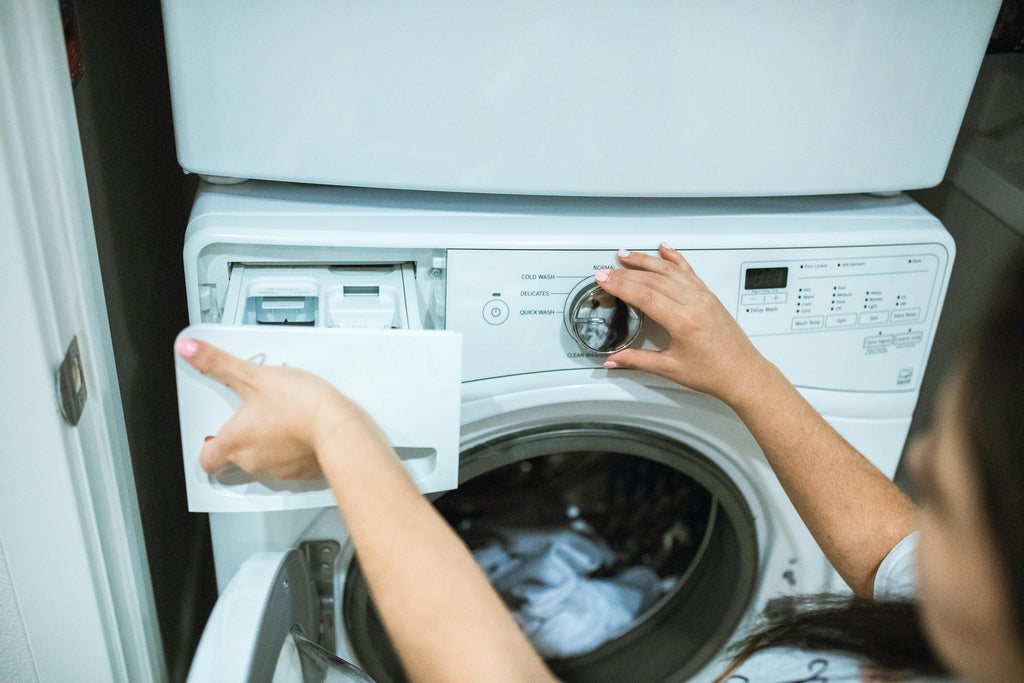
Clean Washing Machine Cleaners for a Sparkling and Fresh Home
How to Clean Your Washing Machine: A Complete Guide
Keeping your washing machine in pristine condition is essential for ensuring your clothes come out clean and fresh with every wash. Over time, washing machines can accumulate dirt, grime, and detergent residue, leading to unpleasant odors and less efficient operation. In this blog post, we'll walk you through a step-by-step guide on how to clean your laundry machine effectively, discuss common issues that arise from a dirty washing machine, and explore the benefits of using laundry machine cleaners.
Step-by-Step Guide on How to Clean Your Laundry Machine
1. Prepare the Machine: Start by emptying the drum of your washing machine and removing any debris. Wipe down the exterior with a damp cloth.
2. Run a Hot Water Cycle: Fill the drum with hot water and add a laundry machine cleaner of your choice. For this guide, we recommend using MamaSuds Toilet Bombs or MamaSuds Automatic Dishwasher Powder for their effective and eco-friendly cleaning properties.
3. Clean the Detergent Dispenser: While the hot water cycle runs, take out the detergent dispenser and soak it in warm, soapy water. Use a small brush to remove residue.
4. Clean the Drum and Seals: After the cycle ends, wipe inside the drum and around the seals with a damp cloth. If necessary, use a soft brush to tackle any stubborn areas.
5. Rinse and Dry: Run one more rinse cycle to clear out any remaining cleaner. Once complete, dry the drum, seals, and exterior with a clean cloth.
6. Regular Maintenance: Incorporating a maintenance clean every few months will keep your machine smelling fresh and working efficiently.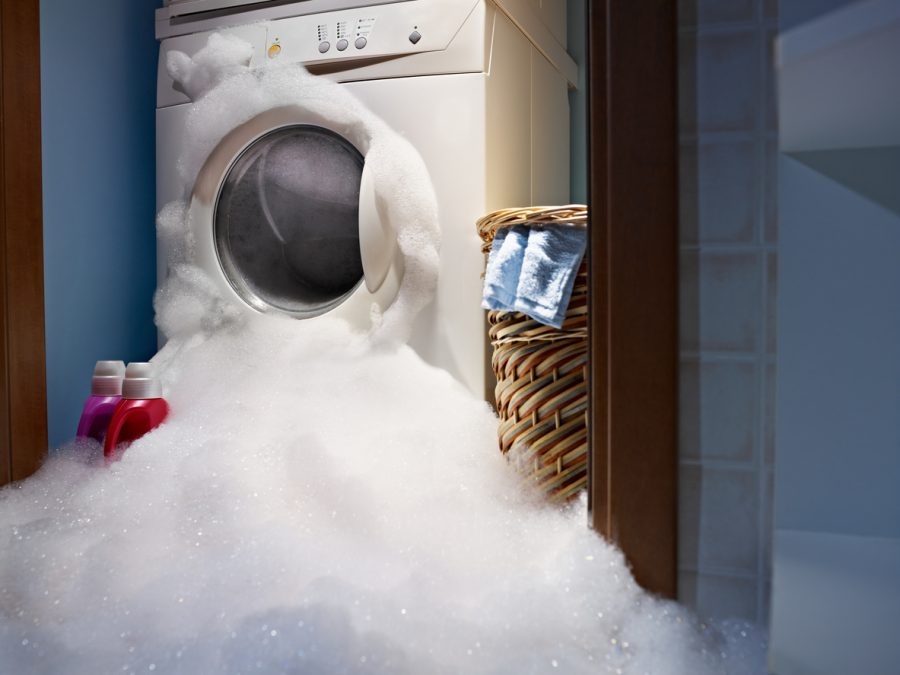
Common Laundry Machine Problems
A lack of regular cleaning can lead to various issues, including:
- Musty Odors: Caused by the buildup of moisture, leading to mold and mildew.
- Mold and Mildew Growth: Especially around the rubber seals of the door, posing health risks and staining clothes.
- Poor Cleaning Results: Residue from detergents and fabric softeners can cling to your clothes, making them look dull and feel rough. We highly recommend using a residue-free laundry detergent/soap so that this doesn't happen in the future. You know what we are going to recommend, right?
Benefits of Using Laundry Machine Cleaners
Using specialized cleaners like MamaSuds products can offer several advantages:
- Remove Buildup: These cleaners effectively dissolve dirt, grime, and residues, improving your machine's performance.
- Eliminate Odors: They target the bacteria and fungus causing bad smells for a fresher appliance.
- Extend Appliance Lifespan: Regular use can prevent mechanical failures by keeping your machine clean and unobstructed.
Choosing the Right Laundry Machine Cleaner
There are various types of cleaners available, each formulated for different cleaning needs. Enzyme-based cleaners excel at breaking down organic residues while descaling agents are best for combating mineral deposits in hardwater areas. Oxygen bleach cleaners are great for all-around cleaning and brightening, and vinegar or citric acid-based solutions offer natural alternatives. All-in-one cleaners provide a comprehensive solution, combining multiple benefits into one product.
Importance of Cleaning Your Laundry Machine
Regularly cleaning your laundry machine is crucial for several reasons. It prevents the growth of mold and mildew, ensures your clothes are thoroughly cleaned and free from odors, and extends the lifespan of your machine. Remember, a clean washing machine equals clean, fresh-smelling clothes.
Incorporating these cleaning steps into your routine can help you maintain a clean and efficient laundry machine. By choosing the right products, like MamaSuds Toilet Bombs or MamaSuds Automatic Dishwasher Powder, you're not only ensuring a thorough cleaning but also supporting eco-friendly cleaning solutions. Keep your washing machine in top condition and enjoy the benefits of fresh, clean laundry every time.:max_bytes(150000):strip_icc()/how-to-clean-a-washing-machine-1388712_04-a1a0956280094233872e68b9e7ca9954.jpg)
DIY Laundry Machine Cleaner Recipes
If you prefer a more natural and budget-friendly approach, you can create your own laundry machine cleaner using common household ingredients. Here are two simple DIY recipes you can try:
- Vinegar and Baking Soda Cleaner:
- Mix 1 cup of white vinegar and 1/2 cup of baking soda.
- Pour the mixture into the detergent dispenser.
- Run a hot water cycle without any clothes.
- Wipe down the drum and seals with a damp cloth.
- Lemon Juice and Citric Acid Cleaner:
- Squeeze the juice of 2 lemons.
- Dissolve 1/4 cup of citric acid in warm water.
- Pour the lemon juice and citric acid mixture into the detergent dispenser.
- Run a hot water cycle without any clothes.
- Wipe down the drum and seals with a damp cloth.
These DIY cleaners are effective at removing odors, stains, and mineral deposits. However, it's important to note that they may not provide the same level of deep cleaning as commercial laundry machine cleaners.
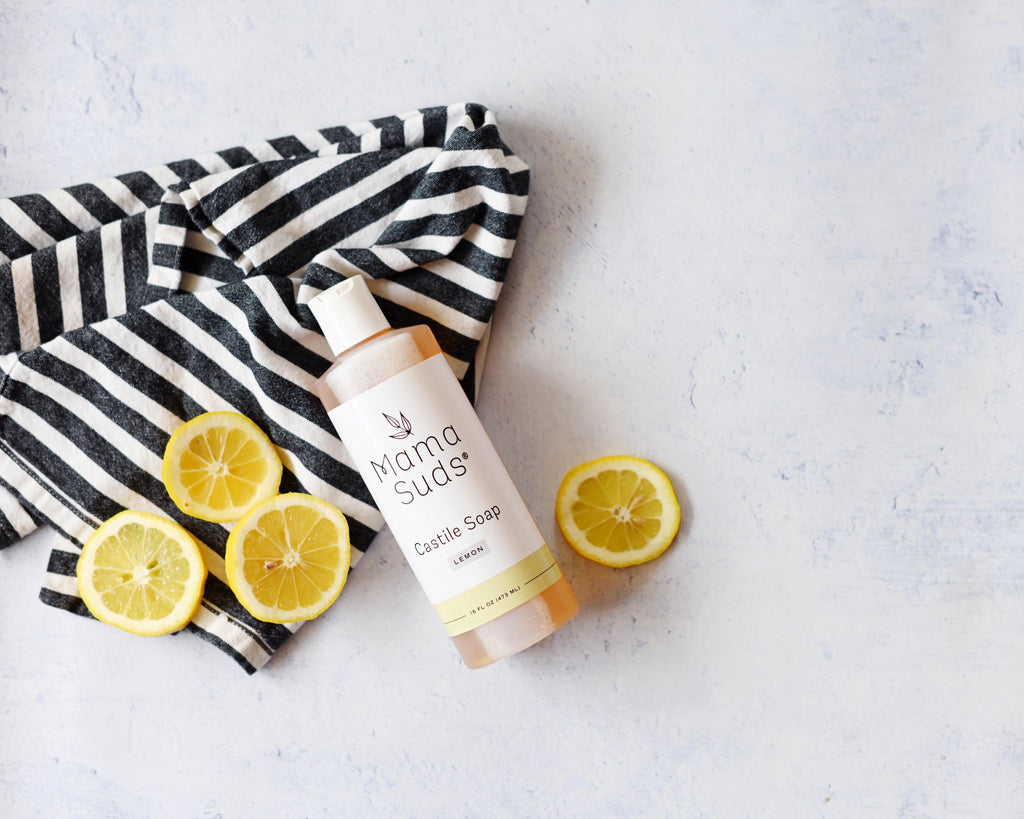
Replace 4 Household Products With Castile Soap
• It can be used to make DIY beauty products and household cleaning products.
• Castile Soap offers benefits like versatility, affordability, and gentle cleansing qualities.
• It can be used as a shampoo, body wash, laundry detergent, dish soap then followed up with an acid for stunning results.
• MamaSuds offers quality Castile soap-based products at an affordable price.
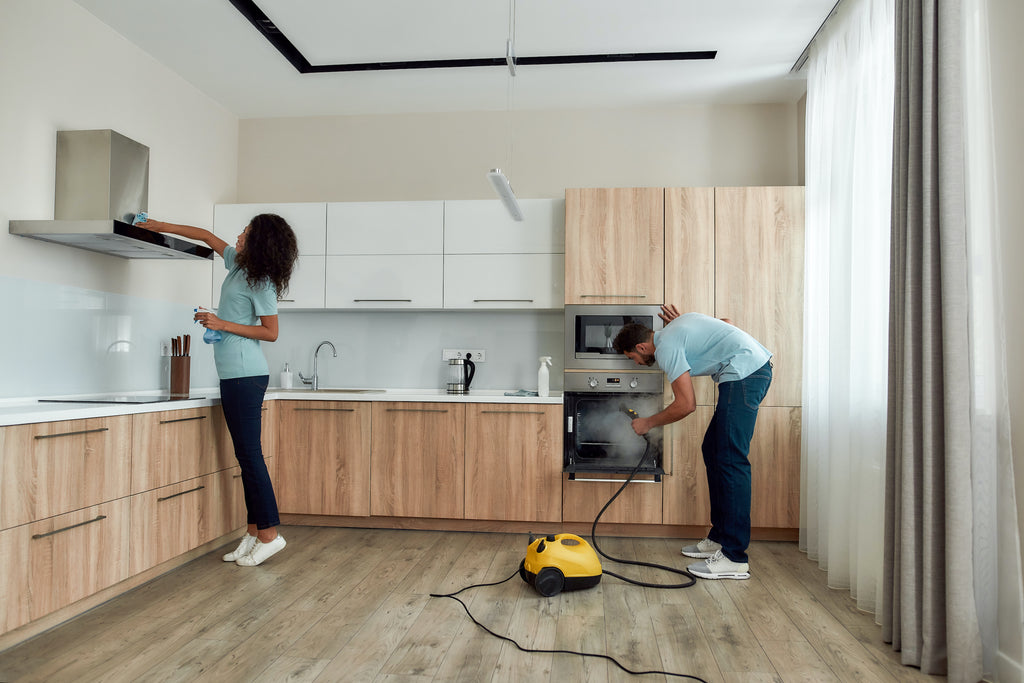
Green Clean Your Home With These Natural Products
• Hydrogen peroxide, MamaSuds All-Purpose Cleaner Concentrate, Castile soap and white vinegar can be used for non-toxic carpet and floor cleaning.
• Homemade all-purpose cleaners can be used to clean the bathroom non-toxically.
• Baking soda and vinegar solution is an effective way to remove hard water stains from the toilet and other surfaces.
• Castile soap with essential oils make a pleasant aromatic cleaner for bathrooms and other areas around the house.
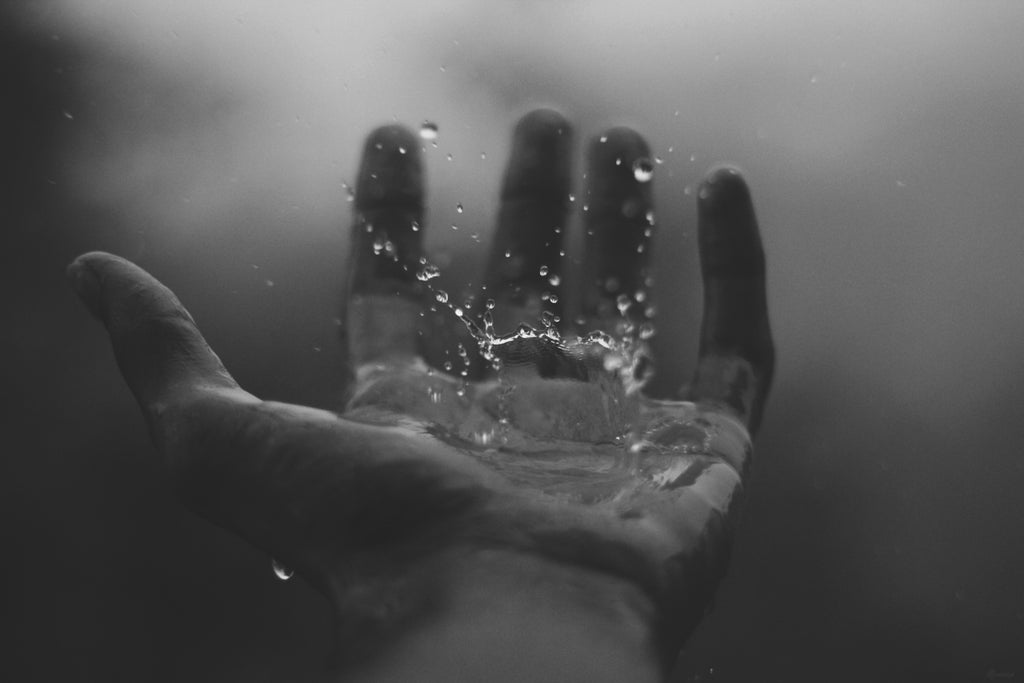
The Dirty Details of Chemical Cleaners
No one wants to keep a dirty home, but regular cleaning using chemical compounds can be dangerous for your health. Cleaning substances are the 3rd most common reason for exposure to poison in adults, and the second most common reason for exposure in children. Everything from dish soaps to fabric softeners can include toxins that pose a risk to you, your family, and the environment. The next time that you go to clean the messiest rooms of your house, it’s a good idea to be aware of the dangers that your cleaning products may pose to your wellbeing.
Skin Damage
Harsh chemical cleaners are known to cause damage to the skin. While mild detergents might just dry skin out and become dehydrated, stronger corrosive and acidic cleansers can lead to severe burns if they come in contact with the skin or eyes. If ingested, these cleaners can also do internal damage to the mouth, throat, and esophagus. Some of the most dangerous cleaners include corrosive drain solutions, oven cleaners, strong bleach mixtures, and acidic toilet bowl cleaners.
Breathing Problems
If you're cleaning a poorly ventilated area, chemical cleaners may produce fumes that can irritate the nose, throat, and lungs. Chlorine bleach and ammonia can both cause breathing difficulties, especially in people with asthma or other chronic lung problems. Combining different cleaners can be particularly dangerous. Adding ammonia to chlorine or lye can produce hazardous chloramine gases while combining chlorine with acids can lead to caustic chlorine gas.
Carcinogenic Agents
While many health issues caused by chemical cleaners are brief and temporary, there can also be long-term consequences. Some cleaners contain compounds that increase your risk of developing cancer. All-purpose cleaners containing diethanolamine (DEA) and triethanolamine (TEA) create carcinogenic nitrosamines when they come in contact with nitrites. 1,4-dioxane and phenols are also commonly found ingredients that are suspected carcinogens.
Environmental Concerns
In addition to impacting your health, chemical cleaners can also affect the environment around you. Some cleaners contain compounds that don’t readily break down during the treatment process, releasing hazardous detergents and disinfectants into the waterways. Not only does this threaten the health of local marine wildlife, but it can also lead to dangerous chemicals and carcinogens showing up in your food. You might begin to see dangerous levels of toxins in local fish populations, or runoff may make its way into the soil and affect crops.
It's important to be careful about what products you bring into your home when dealing with cleaners. You should always read the label to ensure that no ingredients are present that might harm you or your family. Switching to green products such as MamaSuds Household Cleaners can help to keep your dishes, your clothes, and your home free of toxic chemicals.
Contribution by freelance writer Sally Preston
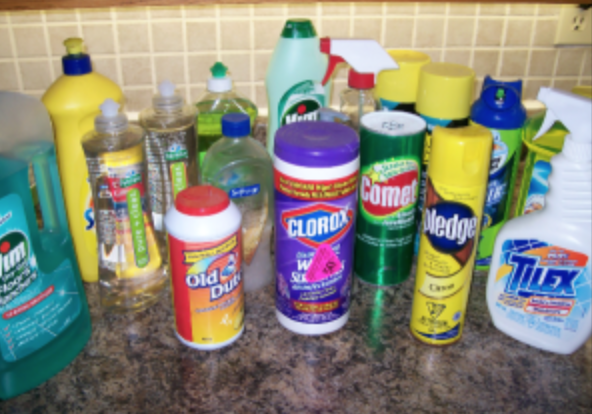
How to Switch to Safe Cleaners in 3 Easy Steps
Today's post is about ditching your cleaners. People have a lot of cleaners. There is a specific cleaner for every nook and cranny in your home. Not only is that a lot of product that is most likely harmful to your health and to our environment, it's a LOT of plastic.
Do you really need ALL those products? You will quickly learn that you don't. Do you know what else you will learn? You will learn that after a month or two after ditching your old products and switching to green products, you will have a hard time walking down the cleaning aisle at the grocery store. Seriously. The fumes will overwhelm you. Today you might be skeptical because you LOVE the smell of your products, but after you learn what is in them and your nose adjusts to the actual smell of "CLEAN" and the natural smell of essential oils, you'll be walking past the cleaning aisle holding your breath.
So how many different cleaners do you have? Seriously, go look. Go under your sink in your kitchen and count how many cleaners you have.
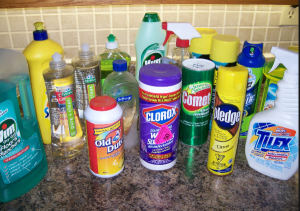
This is what my cleaning products consisted of before my cleaners went green.
We learn very early on in life to stay away from things that will hurt us. At some point, companies in our country have decided that products that will hurt us are okay if we don't overuse them or if we don't use them very often. I couldn't agree less. Which leads me into:
How to Switch to Safe Cleaners in 3 Easy Steps
Step 1: Ditch products that have warning labels on them.
Small quantities of hazardous substances can accumulate over time to reach dangerous levels and contaminate the air, our water and soil. Others can have a more immediate effect- like poisoning, if discovered by our kids or pets. If the label says, CORROSIVE, FLAMMABLE, or TOXIC/POISON it is considered household hazardous waste and should be disposed of (properly).
This is the warning label on bleach.
You will most likely find these warnings on oven cleaners and products that unclog drains. These labels and symbols warn us about acute health hazards associated with a single or short-term exposure to chemicals in the product. What about the long term? What if we are exposed to cleaning products and their residues at low levels on a daily basis?
*side note: all products will have a caution statement on them. These are okay. They are legally required to be on all products.
Step 2: Ditch products that have ingredients with numbers attached to them.
Why? Theses are typically artificial chemicals that have been added to change the product's appearance or shelf-life. This is bad news for our planet. The more an ingredient is processed the more damage it does. Our water supply gets increasing polluted when these toxic chemicals get flushed out of our homes and into our ecosystem. It is a vicious chain of events that affects our water, animals, plants and people. Not all ingredients with numbers are necessarily a health concern, but what should bother you is the fact that it synthetic and is an environmental concern.
Step 3: Ditch products that say 'fragrance' or 'parfum'
The products in your home that list fragrance or parfum as an ingredient are most likely synthetic fragrances that contain phthalates. (If a company is using phthalate-free fragrance they will definitely tell you). Most phthalates (actually pronounced thal-ates) are a group of chemicals in a gajillion of products in your home.
Concerns have been raised about phthalates because studies have found a link between phthalates and thyroid hormone levels in humans, and between phthalates and male reproductive health. Phthalates can be found all over your house because they are in almost every product AND THEY ARE NOT REQUIRED TO BE LISTED ON THE INGREDIENT LIST. Phthalates are disguised under the word "fragrance". They are so widely used it's nearly impossible to eliminate them from your life, but there are some steps to reduce your exposure by eliminating products from your life. No doubt, this is difficult and daunting at first but if you do it slowly you can gradually take this toxin out of your home. I took the time to look at the labels and eliminate the products that said the word "fragrance" on them. If there wasn't a full ingredient list, I searched for it. Here is another article I wrote about fragrance and air fresheners.
There you have it. Three easy steps. It's just a start, but once you start you'll create momentum and soon your household cleaners will be healthy and eco-friendly! Are you interested in learning more about how to read labels and become a ingredient ninja? Have more confidence when you go to the store and buy cleaning products? Learn how not to be duped by companies that act like "green" companies (aka green washers)? Want to know which products work (not just my products!)? I can totally help you... I am just finishing up creating my 10 Day class called EcoCleaners 101. If you're interested in being notified when you can sign up for this class opt-in below. Just for opting in, I will send you my Top 5 Most Important Products for SAFE & ECO-FRIENDLY CLEANING!
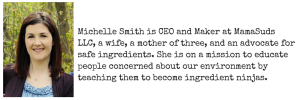

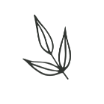

:strip_icc()/BHG-How-To-Clean-a-Washing-Machine-Step-03-70c4613db7784f549f022c764836dfb6.jpg)
